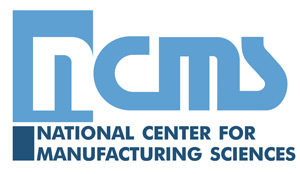Advanced Distributed Learning Using the Maintenance Activity Mentoring System (MMS) I and II
NCMS Project #: 130925
Problem: This project provided a direct reduction in the training logistics and maintenance infrastructure required to support maintenance activities for both commercial industry and the DoD. Using General Motors Strategy Based Diagnostics (SBD) methodology, NCMS and its commercial industrial partners converted existing DoD training manuals into the appropriate SBD format to evaluate and validate the methodologies’ effectiveness within DoD maintenance activities. NCMS measured cost reductions associated with on-demand learning, reduction in formal classroom procedures, increased maintenance training productivity, and reduction in wrong-part-fixed-right processing.
Benefit:
- Cost:
- The use of the MMS saved 62 minutes out of a total 682 minutes for Stage I F-402-408B engine assembly. This results in a cost savings of $1,925/engine in labor and $73,440/engine in unavailable aircraft down-time for a total of $75,365 for this one model of engine at this one depot. Substantial savings would therefore ensue if MMS were to be fully employed across all services.
- The MMS is effective at capturing experience knowledge through the Make-a-Note feature. However, since it has not been implemented to date as part of standard operating procedures, no decrease in certification time could be established.
- Time savings:
- The MMS provides a significant reduction in engine assembly time, a savings of 9% which would increase to 15% should all local documentation transactions be incorporated. These savings should increase over time as the artisans move beyond their learning curve with the MMS.
- New technology acceptance:
- The MMS is well received and is successfully being used at the NADEP Cherry Point.
- The MMS can be successfully implemented across the NADEP as implementation issues are being refined and overcome.
Solution/Approach: The two-phase approach first structured a feasibility study in phase I to evaluate diagnostics and repair tools utilizing fully interactive information retrieval technologies that allowed skilled technicians with diverse experience, training, and expertise levels, to effectively trouble-shoot and repair systems efficiently and at significantly lower costs. Phase II tested the effectiveness of distributed learning technologies in a Maintenance Mentoring System (MMS), developed by L3 Communications (formerly EER Systems) as part of the phase II project. The MMS was pilot tested at the Naval Air Depot (NADEP) Cherry Point, North Carolina to provide timely and accurate procedural and required reference information to the F-402-408B Harrier aircraft engine assembly workers. Didactics conducted an independent evaluation of the MMS effectiveness at the NADEP and compared it to the traditional paper-based approach. The objective was two fold: to determine the extent to which the MMS was effective at capturing experience knowledge thereby reducing the time for artisan certification, and to determine any savings in time for engine repair and assembly.
Impact on Warfighter: Increased quality and reliability in executing repairs with timely electronic access to latest version of repair procedures and advisories resulting in increased availability of weapons systems.
DOD Participation:
- U.S. Navy – NADEP Cherry Point
Industry Participation:
- L3 Communications (formerly EER Systems)
- Didactics
- Intelliworx
- General Motors Corporation
- NCMS
